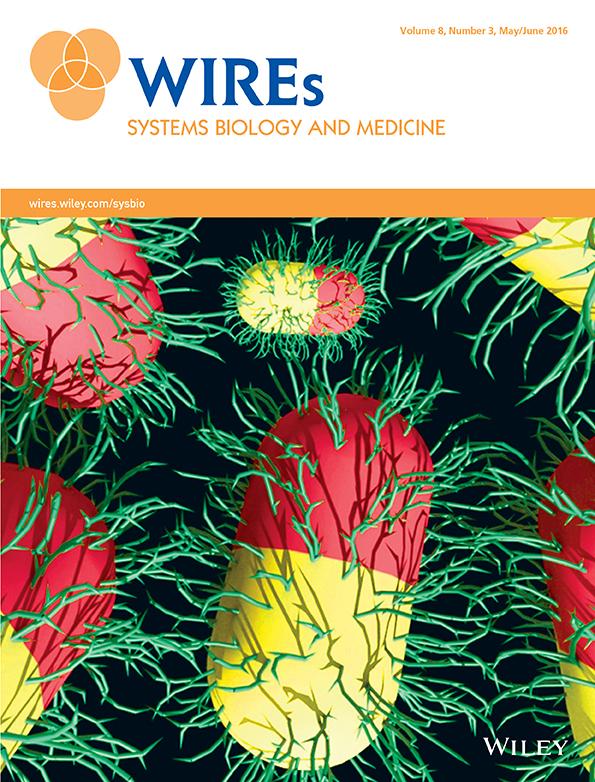行为实验胚胎学
IF 7.9
Q1 Medicine
Wiley Interdisciplinary Reviews-Systems Biology and Medicine
Pub Date : 2017-01-01
DOI:10.1002/wsbm.1333
引用次数: 78
摘要
为什么我们长大后会有这些特质?大多数20世纪的科学家只提到我们的基因和环境来回答这个问题。但是,最近在行为表观遗传学这一新兴领域的发现揭示了基因和环境之间的界面因素,这些因素在发育中也起着至关重要的作用。这些因素影响着基因的工作方式;科学家们现在知道,与你有什么基因(以及你遇到什么环境)同样重要的是,你的基因是如何受到环境的影响的。我们的基因在一定程度上取决于我们的经历,这一发现揭示了先天和后天是如何在我们体内的分子水平上相互作用的。来自全球行为表观遗传学实验室的数据支持这样一种观点,即一个人的基因本身并不能决定他或她最终是否会害羞、患有心血管疾病或非常聪明。影响基因活动的环境因素包括父母教养方式、饮食和社会地位。除了影响医生治疗疾病的方法外,行为表观遗传学的发现还可能改变生物学家对进化的看法,因为经验的一些表观遗传学效应似乎可以代代相传。这一研究领域可能会改变我们对人性起源的看法。中国生物医学工程学报,2017,33(4):533 - 533。doi: 10.1002 / wsbm.1333本文章由计算机程序翻译,如有差异,请以英文原文为准。
Behavioral epigenetics
Why do we grow up to have the traits we do? Most 20th century scientists answered this question by referring only to our genes and our environments. But recent discoveries in the emerging field of behavioral epigenetics have revealed factors at the interface between genes and environments that also play crucial roles in development. These factors affect how genes work; scientists now know that what matters as much as which genes you have (and what environments you encounter) is how your genes are affected by their contexts. The discovery that what our genes do depends in part on our experiences has shed light on how Nature and Nurture interact at the molecular level inside of our bodies. Data emerging from the world's behavioral epigenetics laboratories support the idea that a person's genes alone cannot determine if, for example, he or she will end up shy, suffering from cardiovascular disease, or extremely smart. Among the environmental factors that can influence genetic activity are parenting styles, diets, and social statuses. In addition to influencing how doctors treat diseases, discoveries about behavioral epigenetics are likely to alter how biologists think about evolution, because some epigenetic effects of experience appear to be transmissible from generation to generation. This domain of research will likely change how we think about the origins of human nature. WIREs Syst Biol Med 2017, 9:e1333. doi: 10.1002/wsbm.1333
求助全文
通过发布文献求助,成功后即可免费获取论文全文。
去求助
来源期刊

Wiley Interdisciplinary Reviews-Systems Biology and Medicine
MEDICINE, RESEARCH & EXPERIMENTAL-
CiteScore
18.40
自引率
0.00%
发文量
0
审稿时长
>12 weeks
期刊介绍:
Journal Name:Wiley Interdisciplinary Reviews-Systems Biology and Medicine
Focus:
Strong interdisciplinary focus
Serves as an encyclopedic reference for systems biology research
Conceptual Framework:
Systems biology asserts the study of organisms as hierarchical systems or networks
Individual biological components interact in complex ways within these systems
Article Coverage:
Discusses biology, methods, and models
Spans systems from a few molecules to whole species
Topical Coverage:
Developmental Biology
Physiology
Biological Mechanisms
Models of Systems, Properties, and Processes
Laboratory Methods and Technologies
Translational, Genomic, and Systems Medicine
 求助内容:
求助内容: 应助结果提醒方式:
应助结果提醒方式:


